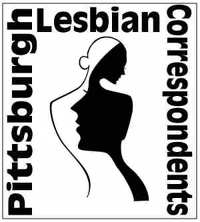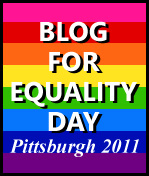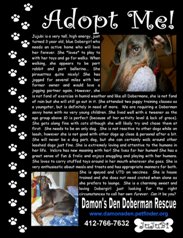You may have heard by now of a recent incident where a local gay man was assaulted while waiting for a bus. The community responded with two rallies and a lot of discussion about interaction between the LGBT community and the police.
This is an age old debate that requires self-examination on both sides and that seems to be a break down point. Many in the LGBT community have had negative experiences with the police and are disengaged b/c there's no trust. To be repeatedly told "call 911" or "file reports" when your personal experiences are traumatic is not getting anywhere. Add in the near constant media reports of negative behavior by the police department when interacting with minority groups and you hit a wall.
On the other hand, if there is no data and no information being fed to the police their hand are tied. People in the general public have unrealistic expectations of 911 and responses to emergencies. If the police aren't there in minutes, the assumption is that they didn't care. So when they do arrive two hours later to investigate, folks are unwilling to cooperate. That's a catch 22 and doesn't help anyone.
How do you get around this?
Progress has been made. This year's Dyke March finally had adequate police protection, but it took five years and a lot of pressure. Tied up in that was a sense of disenchantment by some event organizers that the police truly didn't care if particpants were safe ... the same dynamic. Yet I had conversations with more than one officer at the event that showed they are gay friendly and willing to engage far more than simply guarding their street corner.
There are systemic solutions. The Mayor's LGBT Advisory Committee is one such option, but we have to be realistic about their ability to effect the sort of dialogue necessary to bring about change. Frankly, I've attended a lot of meetings with commanders and even the Chief where we just get lectured about reporting, reporting, reporting and a protective nature toward their team (with regard to community violence). There's been no acknowledgement of systemic homophobia within the police force so I don't hold out a lot of hope. I also think the disconnect I described above is mirrored within our community along socioeconomic/class lines so those who get access to these meetings aren't the ones getting bashed.
City Council is another resource. We need to insist our allies on Council take up this rallying cry. Several years ago, Bill Peduto repeatedly reminded Council that LGBT issues were part of the federal consent decree under which the police force operated for several years (essentially oversight by the Department of Justice). Yet, we rarely see LGBT issues put forth by CPRB or other citizen groups in an organized manner. That would bring us back to the lack of organization in our community and the lack of data due to underreporting.
My recommendation is that we push for an LGBT liaison in the police department. This person would be our point person to discuss concerns and positive outcomes. This officer attends our meetings, large and small, to address the issues being raised -- training, tracking, how 911 works, etc. This officer gets to know us from Gay Inc to the everday queer so s/he can carry our stories and experiences back to the entire Department of Public Safety. This officer is not just chatting with the Mayor's allies, but reaching out to the entire community. Many of us have his/her phone number. You see what I mean? Not a token person assigned to come to one meeting, but an officer who gets invested in our community and diligently works to earn our trust.
It is about a relationship between our community and the institution which leads to a better relationship with the individual officers. That core relationship will generate the reporting necessary to tackle the crimes. It will empower CPRB to tackle the situations where police response is not according to procedure.
We also need a leader to step forward to push for necessary dialogue within the community. Pittsburgh does not have an organized LGBT grassroots presence. We have anarchists and philanthropists. We've lost touch with that piece of our history, a consequence of assimilation.
Just my $.02.





